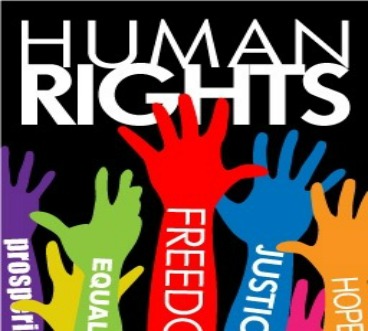Mr. Speaker, as co-chairman of the Helsinki Commission and the sponsor of the Belarus Democracy Act, I remain deeply concerned about the violations of human rights occurring every day in Lukashenka’s Belarus.
During a recent news conference, the autocratic Belarusian leader expressed confidence in his victory in the presidential election scheduled for next year, rhetorically asking why should he be rigging this election. Given his intensified assault on civil society, his dismal human rights record, and penchant for rigged elections, Mr. Lukashenka’s statements ring hollow. Yet, Lukashenka’s actions against democratic forces, non-governmental organizations and the independent media belie his stated confidence regarding electoral victory.
Last week, the lower chamber of Lukashenka’s pocket parliament passed a law endorsing tougher new penalties for activities “directed against people and public security,” a proposal submitted to the parliament only days before passage. These changes to the Criminal Code increase penalties for participation in organizations that were liquidated or warned to stop their pro-democratic activities, or for the training and other preparations for unauthorized demonstrations or other civic actions.
Mr. Speaker, to cite just one of the draconian provisions, the Code now gives authorities the leeway to jail an individual for up to 2 years for “providing a foreign country, a foreign or international organization with patently false information about the political, economic, social, military, and international situation of the Republic of Belarus.” Putting aside the matter of such a provision violating free speech norms, if the past is any guide, it is clear who would be the arbiter of what constitutes “false information.” There can be no doubt that the law aims to stifle the democratic opposition, and the head of the KGB (yes, in Belarus it is still called the KGB) himself recently admitted that the reasons for the law is to discourage street protests during the upcoming presidential race.
This law, while particularly blatant, is part and parcel of other actions designed to strengthen the regime’s control and deny the Belarusian people any alternative voices as the presidential election campaign unfolds. Last month, a new law further controlling political parties came into force. A recent Council of Ministers decree clamps down on organizations that conduct public opinion polls. A Lukashenka decree further discriminates against independent trade unions, stipulating that only trade unions belonging to the pro-governmental federation are granted the right to premises at no cost. Yet another decree considerably limits students’ opportunities to travel abroad.
Meanwhile, opposition activists are routinely beaten up or detained. Just last week, for instance, Ales Kalita was detained and at the hands of the police suffered a dislocated arm for merely distributing the independent newspaper “Narodna Volya.” Viktor Syritsya, a lecturer at Baranavichi College was fired for organizing a meeting of students with presidential opposition candidate Alexander Milinkevich. Belarusian State Economic University in Minsk expelled fourth-year student Tatsyana Khoma because she took a brief trip to France, where she was elected to the executive committee of the Brussels-based National Unions of Students in Europe (ESIB), an umbrella organization of 44 national student unions from 34 countries. The police beat activist Mikita Sasim. They detained youth activists Yauhen Afnagel and others. Other repressive actions include frequent arrests of activists of democratic youth movements such as ZUBR, a ban on worship by some religious congregations and other repressive actions against selected religious minorities, and continued harassment of members of the Union of Poles in Belarus.
Moreover, there is an emerging pattern of the regime putting obstacles in the way of Mr. Milinkevich. Recently, a public meeting he held in Borbuisk was disrupted by the authorities, with participants being told by the authorities to go home and threatened with tax inspections. During a press conference, the electricity in the room was cut off, as well as a “hot-line” phone with town residents.
Especially egregious has been the regime’s intensification of the war against the already repressed and struggling independent media. Newspaper closures, suspensions, threats, and exorbitant and absurd libel fines, pressures on advertisers and other forms of harassment have become routine. Outright police confiscations of independent newspapers are also not uncommon. A seemingly more subtle tactic, implemented just a few weeks ago, involved the decision by Belarus’ monopoly state postal service to stop delivery to subscribers of a dozen private periodicals. Meanwhile, the suspicious murder in 2004 of journalist Veronika Charkasova has not been resolved. Authorities have refused to open a criminal investigation into journalist Vasil Hrodnikau’s death. Lukashenka himself recently admitted to Russian journalists that his regime applies very serious pressure on the media, somewhat incongruously adding that “this does not mean I am crushing them.”
Mr. Speaker, what I have cited is by no means an exhaustive list of abuses perpetrated by the Lukashenka regime, merely a sampling of the types of repressive actions employed on a daily basis by Europe’s last dictator. As Helsinki Commission Co-Chair, I will continue to monitor closely and speak out forcefully regarding these and other violations of Belarus’ freely undertaken OSCE commitments. I urge the Bush Administration to step up efforts to break the Lukashenka regime’s near monopoly over the country’s information space and provide timely assistance to pro-democracy forces in Belarus.
It is clear that Mr. Lukashenka and his minions are laying the groundwork for yet another un-free and unfair election–similar to the 2001 presidential elections and the 2000 and 2004 parliamentary elections–that will fall far short of OSCE standards. Lukashenka is once again showing that, despite his confident rhetoric, he fears his own people and profoundly fails to respect their dignity as citizens and as human beings.





